-
U.S. to build drone base in Niger
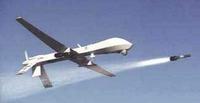
With the war in Mali raging, the U.S. Africa Command is now establishing a drone base in northwest Africa in order to bolster U.S. surveillance – and operational — capabilities against Islamist groups in the region. Initially, the drones flying from the base will conduct unarmed surveillance missions, but there is little doubt that if targets present themselves, these drones will be equipped with missiles and go on hunting-killing missions.
-
-
Nebraska lawmakers look to limit police drone use
The Federal Aviation Administration says there will be around 30,000 commercial and government drones flying over the United States in the next ten years. The business of selling and servicing domestic drones is projected to grow into a $90 billion industry. Lawmakers at the federal and state level say that to prevent these drone from encroaching on citizens’ privacy, it is time to define what they can do, where, and when.
-
-
Aerial platform helps in developing lightweight sensors for UAVs
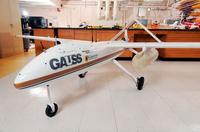
A research team at the Georgia Tech Research Institute (GTRI) is developing an airborne testing capability for sensors, communications devices, and other airborne payloads. This aerial test bed, called the GTRI Airborne Unmanned Sensor System (GAUSS), is based on an unmanned aerial vehicle (UAV) made by Griffon Aerospace and modified by GTRI.
-
-
Seattle debates use of drones by police
The debate between law enforcement and privacy advocates over the use of UAVs is now taking place in Seattle; since President Obama signed a bill in February pushing the Federal Aviation Administration (FAA) to allow the use of civilian drones in America by 2015, many law enforcement agencies have been preparing to use drones
-
-
Privacy advocates succeed in delaying drone purchase by California country sheriff
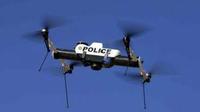
Congress earlier this year passed legislation earlier this year ordering the Federal Aviation Administration (FAA) to accelerate the approval of the use of unmanned aerial vehicles (UAVs) for law enforcement and other domestic purposes, and, law enforcement agencies around the country are moving to purchase drones; Alameda Country, California planned to buy a drone, but action by the ACLU and the Electronic Frontier Foundation forced the county to hold a public hearing on drone use and formulate guideless for, and set limits on, drone use by police
-
-
Sudan says Israel using electronically equipped vultures as spies
Sudanese security forces have captures what they describe as an electronically tagged vulture which was dispatched by the Israeli military on a surveillance mission over Sudan; the Sudanese claimed the vulture was equipped with a camera, a solar-powered satellite uplink, and a GPS device; the Sudanese also claimed that the surveillance gear was produced by the Hebrew University in Jerusalem, and that it was stamped with the university’s logo
-
-
Two small, long-endurance UAVs unveiled
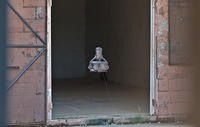
Danvers, Massachusetts-based CyPhy Works, a new robotics company, the other day unveiled two revolutionary small unmanned air vehicles (UAVs): EASE and PARC; the Extreme Access System for Entry (EASE) is an indoor flying UAV to help police, soldiers, and inspectors remain at safe standoff distances; the Persistent Aerial Reconnaissance and Communications (PARC) is designed to fly vertically and remain hovering for unprecedented long durations without operator intervention
-
-
CBP wants more drones, but lawmakers want more details about their use
The U.S. Customs and Border Protection (CBP) wants to have a fleet of twenty-four drones to patrol the northern and southern borders of the United States, but Congress has yet to appropriate funding beyond the first ten drones; so far in 2012, drones have been credited with leading to more arrests and drug seizures than ever before, but their contribution is still small
-
-
U.S. denies Iran’s claim that it had captured a U.S. surveillance drone
Drones are used extensively by the United States to monitor not only Iran’s nuclear activities, but also its military moves on land and at sea. Iran’s state television reported on Tuesday that Iran’s Revolutionary Guards Corps naval forces captured an American drone that entered Iranian airspace over the Persian Gulf. The U.S. Navy quickly denied the claim
-
-
U.S. skies may soon be open to drones
Unmanned drones are cheaper than manned aircraft and can be used in a variety of ways, such as assessing environmental threats and damage from natural disaster, tracking criminals trying to escape on a highway, and assessing wildfires; according to an FAA prediction, 30,000 drones could be flying in the United States in less than twenty years; lawmakers and privacy advocates want the use of these drones more tightly regulated
-
-
U.S.-Iran tensions rise as Iran tries to disrupt U.S. reconnaissance flights in Gulf
Tensions between the United States and Iran increase as news emerged last week of an attempt by four Iranian fighter planes, on 1 November, to shoot down a U.S. Predator drone engaged in a surveillance mission over international water in the Persian Gulf
-
-
As domestic use of drones grows, privacy advocates worry
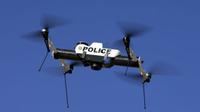
Small aerial drones are moving from the battlefield to local communities, and the pace grows faster; during the next year, drones may be used in cities and towns to help fight crime and keep officers out of danger; their use would save on the cost of fuel for police helicopters; some would feel safer as a result, but activists worry that this could be the beginning of a systemic invasion of privacy
-
-
Hezbollah drone represents changing technological landscape for Israel
Israel’s air defenses worked just fine in handling the drone launched by Hezbollah last week: the drone was picked up by Israeli surveillance as it was launched from southern Lebanon, then tracked as it flew south over the Mediterranean; it was allowed to enter Israeli air space so that after it was shot down, its remains could be collected and analyzed; still, the incident made many Israelis sit up and take notice; Israel, a country which has pioneered the use of UAVs as an integral part of military operations and which has held a monopoly on operating drones in the region, was forced to realize that is adversaries, too, now had access to the technology
-
-
Worries about UAV use in both military and domestic missions exaggerated

Dr. Steven P. Bucci, a Senior Fellow for Homeland Security & Defense Issues at the Heritage Foundation, talked with Derek Major, the Homeland Security News Wire’s executive editor, about the growing use of UAVs in both military and domestic law-enforcement missions; Bucci says that in targeting militants, American drone operators exercise a great deal of care to minimize, and eliminate if possible, death and injury to innocent civilians; he also says that the use of drones in domestic law-enforcement missions, if done properly, will not pose Big Brother risks, because drones may make surveillance easier and cheaper, but it will not give law-enforcement agencies any new authorities
-
-
New launch and recovery system for the Scan Eagle UAV
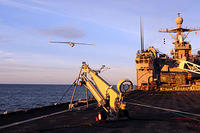
A shipboard-capable system designed to support both the launch and recovery of the Scan Eagle UAV successfully completed final demonstration flight testing on 27 September at a testing range in eastern Oregon
-
More headlines
The long view
Using Drone Swarms to Fight Forest Fires
Forest fires are becoming increasingly catastrophic across the world, accelerated by climate change. Researchers are using multiple swarms of drones to tackle natural disasters like forest fires.
Testing Cutting-Edge Counter-Drone Technology
Drones have many positive applications, bad actors can use them for nefarious purposes. Two recent field demonstrations brought government, academia, and industry together to evaluate innovative counter-unmanned aircraft systems.
